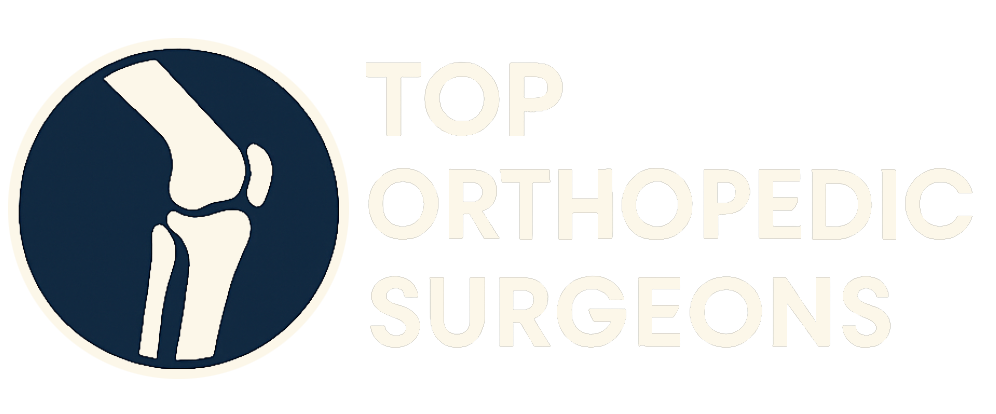Shoulder pain is a common ailment affecting people of all ages and activity levels. It can range from a mild ache to a sharp, debilitating sensation that significantly impacts daily life. Understanding the potential causes of shoulder pain, recognizing its symptoms, and knowing when to seek professional help are essential steps toward effective management and recovery.
This guide provides a comprehensive overview of shoulder pain, exploring its common causes, available treatment options, and the role of orthopedic specialists in restoring shoulder health. Our goal is to empower you with the knowledge needed to make informed decisions about your care and find relief from shoulder pain.
Common Causes of Shoulder Pain
The shoulder is a complex joint, comprising bones, muscles, tendons, and ligaments that work together to provide a wide range of motion. Due to its complexity and frequent use, the shoulder is susceptible to various injuries and conditions that can lead to pain. Here are some of the most common causes of shoulder pain:
Rotator Cuff Injuries
The rotator cuff is a group of four muscles and their tendons that surround the shoulder joint, providing stability and enabling rotation and elevation of the arm. Rotator cuff injuries are a frequent source of shoulder pain, often resulting from overuse, repetitive motions, or acute trauma. Common rotator cuff injuries include:
- Rotator Cuff Tendinitis: Inflammation of the rotator cuff tendons, often due to overuse or repetitive overhead activities.
- Rotator Cuff Tears: Tears in one or more of the rotator cuff tendons, which can occur gradually over time or suddenly due to injury.
Bursitis
Bursae are small, fluid-filled sacs that cushion the bones, tendons, and muscles around the shoulder joint. Bursitis occurs when these bursae become inflamed, leading to pain and stiffness. Overuse, repetitive motions, and direct trauma can cause shoulder bursitis.
Frozen Shoulder (Adhesive Capsulitis)
Frozen shoulder is a condition characterized by stiffness and pain in the shoulder joint. It occurs when the capsule surrounding the shoulder joint thickens and tightens, restricting movement. The cause of frozen shoulder is not always clear, but it can be associated with diabetes, thyroid disorders, and prolonged immobilization.
Shoulder Impingement
Shoulder impingement occurs when the rotator cuff tendons become compressed or pinched as they pass through the space between the shoulder blade (acromion) and the humerus (upper arm bone). This compression can lead to inflammation, pain, and limited range of motion. Repetitive overhead activities and bone spurs can contribute to shoulder impingement.
Osteoarthritis
Osteoarthritis is a degenerative joint disease that can affect the shoulder joint, causing pain, stiffness, and reduced range of motion. It occurs when the cartilage that cushions the ends of the bones wears down over time. While less common in the shoulder than in weight-bearing joints like the knee or hip, osteoarthritis can still cause significant shoulder pain.
Shoulder Instability and Dislocation
Shoulder instability occurs when the head of the humerus comes partially or completely out of the shoulder socket (glenoid). This can happen due to injury or structural abnormalities. Shoulder dislocations are often accompanied by significant pain and require prompt medical attention.
Other Potential Causes
- Labral Tears: Tears in the labrum, a ring of cartilage that stabilizes the shoulder joint.
- AC Joint Injuries: Injuries to the acromioclavicular (AC) joint, where the collarbone meets the shoulder blade.
- Referred Pain: Pain originating from another area of the body, such as the neck or upper back, that is felt in the shoulder.
Recognizing the Symptoms of Shoulder Pain
The symptoms of shoulder pain can vary depending on the underlying cause and severity of the condition. Common symptoms include:
- Pain: Aching, sharp, or throbbing pain in the shoulder, which may radiate down the arm or up into the neck.
- Stiffness: Difficulty moving the shoulder joint, with a limited range of motion.
- Weakness: Weakness in the shoulder or arm, making it difficult to lift or carry objects.
- Clicking or Popping: A clicking or popping sensation in the shoulder joint during movement.
- Numbness or Tingling: Numbness or tingling in the arm or hand, which may indicate nerve compression.
- Pain at Night: Increased pain at night, which can interfere with sleep.
It’s important to pay attention to your symptoms and seek medical attention if your shoulder pain is severe, persistent, or accompanied by other concerning symptoms.
When to Seek Expert Orthopedic Care
While many cases of shoulder pain can be managed with conservative treatments at home, it’s crucial to know when to seek professional orthopedic care. Consult with an orthopedic specialist if you experience any of the following:
- Severe Pain: Intense pain that interferes with daily activities and doesn’t improve with rest or over-the-counter pain relievers.
- Limited Range of Motion: Significant difficulty moving your shoulder or arm.
- Weakness: Noticeable weakness in your shoulder or arm.
- Deformity: Visible deformity of the shoulder joint.
- Sudden Injury: Shoulder pain following a fall, sports injury, or other trauma.
- Persistent Symptoms: Shoulder pain that lasts for more than a few weeks despite home treatment.
- Numbness or Tingling: Numbness or tingling in your arm or hand.
An orthopedic specialist can accurately diagnose the cause of your shoulder pain and recommend the most appropriate treatment plan.
Diagnosis of Shoulder Pain
To diagnose the cause of your shoulder pain, an orthopedic specialist will typically perform a thorough physical examination and review your medical history. They may also order imaging tests to get a better look at the structures within your shoulder joint. Common diagnostic tests for shoulder pain include:
- X-rays: To visualize the bones in your shoulder and identify any fractures, arthritis, or other bone abnormalities.
- MRI (Magnetic Resonance Imaging): To provide detailed images of the soft tissues in your shoulder, such as the rotator cuff tendons, ligaments, and cartilage.
- Ultrasound: To visualize the soft tissues and identify tendon tears, bursitis, or other abnormalities.
- Nerve Conduction Studies: To evaluate nerve function and identify any nerve compression.
Based on the results of these tests, your orthopedic specialist will be able to determine the cause of your shoulder pain and develop a personalized treatment plan.
Treatment Options for Shoulder Pain
The treatment for shoulder pain depends on the underlying cause and severity of the condition. Common treatment options include:
Conservative Treatments
For many cases of shoulder pain, conservative treatments are effective in relieving pain and restoring function. These treatments may include:
- Rest: Avoiding activities that aggravate your shoulder pain.
- Ice: Applying ice packs to your shoulder for 15-20 minutes at a time, several times a day, to reduce inflammation.
- Heat: Applying heat packs to your shoulder to relax muscles and improve blood flow.
- Pain Relievers: Over-the-counter pain relievers, such as ibuprofen or naproxen, to reduce pain and inflammation.
- Physical Therapy: A customized exercise program to strengthen the muscles around your shoulder, improve range of motion, and promote healing.
- Corticosteroid Injections: Injections of corticosteroids into the shoulder joint to reduce inflammation and pain.
Surgical Treatments
If conservative treatments are not effective in relieving your shoulder pain, your orthopedic specialist may recommend surgery. Common surgical procedures for shoulder pain include:
- Arthroscopic Surgery: A minimally invasive procedure that uses small incisions and a camera to visualize and repair the structures within your shoulder joint. Arthroscopic surgery can be used to repair rotator cuff tears, labral tears, and other shoulder problems.
- Open Surgery: A more traditional surgical approach that involves a larger incision to access and repair the shoulder joint. Open surgery may be necessary for more complex shoulder problems.
- Shoulder Replacement Surgery: A procedure to replace the damaged parts of your shoulder joint with artificial components. Shoulder replacement surgery may be recommended for severe osteoarthritis or other conditions that cause significant shoulder pain and disability.
Your orthopedic specialist will discuss the risks and benefits of each surgical option with you to determine the best course of treatment for your specific condition.
Rehabilitation and Recovery
Rehabilitation is an essential part of the recovery process after any shoulder injury or surgery. Physical therapy plays a crucial role in restoring strength, range of motion, and function to your shoulder. A physical therapist will guide you through a customized exercise program that may include:
- Range-of-Motion Exercises: To improve the flexibility and mobility of your shoulder joint.
- Strengthening Exercises: To strengthen the muscles around your shoulder and provide support.
- Proprioceptive Exercises: To improve your sense of balance and coordination.
- Functional Exercises: To help you return to your normal activities.
It’s important to follow your physical therapist’s instructions carefully and gradually increase your activity level as your shoulder heals. With proper rehabilitation, you can regain full function of your shoulder and return to your favorite activities.
Preventing Shoulder Pain
While not all shoulder pain can be prevented, there are several steps you can take to reduce your risk of developing shoulder problems:
- Maintain Good Posture: Proper posture helps to keep your shoulders aligned and reduces stress on the shoulder joint.
- Warm Up Before Exercise: Warming up your muscles before exercise can help to prevent injuries.
- Use Proper Lifting Techniques: When lifting heavy objects, use your legs and keep your back straight to avoid straining your shoulders.
- Avoid Repetitive Overhead Activities: If you perform repetitive overhead activities, take frequent breaks and use proper techniques to minimize stress on your shoulders.
- Strengthen Your Shoulder Muscles: Regular exercise can help to strengthen the muscles around your shoulder and provide support.
- Listen to Your Body: If you experience shoulder pain, stop the activity that is causing the pain and rest your shoulder.
Finding the Right Orthopedic Specialist
If you’re experiencing shoulder pain, finding the right orthopedic specialist is crucial for accurate diagnosis and effective treatment. Top Orthopedic Surgeons connects patients with trusted, board-certified orthopedic specialists across the United States. Our comprehensive directory allows you to easily search for specialists in your area and find the best doctor for your specific needs.
When choosing an orthopedic specialist, consider the following factors:
- Board Certification: Ensure that the specialist is board-certified in orthopedic surgery.
- Experience: Look for a specialist who has extensive experience treating shoulder pain and performing shoulder surgeries.
- Specialization: Consider whether the specialist has a particular specialization in shoulder disorders.
- Patient Reviews: Read online reviews to get an idea of other patients’ experiences with the specialist.
- Location and Insurance: Make sure the specialist is conveniently located and accepts your insurance.
By taking the time to find the right orthopedic specialist, you can ensure that you receive the best possible care for your shoulder pain.
Living with Shoulder Pain
Living with shoulder pain can be challenging, but there are many things you can do to manage your symptoms and improve your quality of life. Here are some tips for living with shoulder pain:
- Stay Active: While it’s important to avoid activities that aggravate your pain, staying active can help to maintain your strength and flexibility.
- Use Assistive Devices: Assistive devices, such as reaching aids and grab bars, can help you to perform daily tasks more easily.
- Maintain a Healthy Weight: Being overweight can put extra stress on your shoulder joint.
- Get Enough Sleep: Getting enough sleep can help to reduce pain and inflammation.
- Manage Stress: Stress can worsen shoulder pain. Find healthy ways to manage stress, such as yoga or meditation.
- Seek Support: Talk to your doctor, physical therapist, or a support group to get help managing your shoulder pain.
Shoulder pain can significantly impact your life, but with the right diagnosis, treatment, and self-care strategies, you can find relief and regain function. Remember to consult with an orthopedic specialist to determine the best course of action for your specific condition.
We hope this guide has provided you with valuable information about shoulder pain and the options available to you. Empowered with knowledge, you can take proactive steps towards managing your shoulder pain and improving your overall well-being.


